
Ashley Yeager is the associate news editor at Science News. Previously, she worked at The Scientist, where she was an associate editor for nearly three years. She has also worked as a freelance editor and writer, and as a writer at the Simons Foundation, Duke University and the W.M. Keck Observatory. She was the web producer for Science News from 2013 to 2015, and was an intern at the magazine in the summer of 2008. She holds a bachelor’s degree in journalism from the University of Tennessee, Knoxville, and a master’s degree in science writing from MIT. Her book, Bright Galaxies, Dark Matter and Beyond, on the life of astronomer Vera Rubin, will be published by MIT Press in August.

Trustworthy journalism comes at a price.
Scientists and journalists share a core belief in questioning, observing and verifying to reach the truth. Science News reports on crucial research and discovery across science disciplines. We need your financial support to make it happen – every contribution makes a difference.
All Stories by Ashley Yeager
-
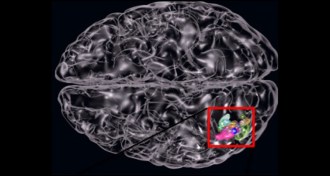 Neuroscience
NeuroscienceThe brain sees words, even nonsense ones, as pictures
Once we learn a word, our brain sees the string of letters as a picture, even if the word isn't a real one.
-
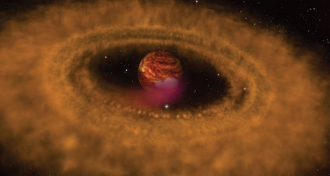 Astronomy
AstronomySolo planets may be surprisingly common
Rogue planets may form as stars do, but on a smaller scale, or they may go forced out of orbit during planetary ping-pong. Researchers are scanning the skies for them.
-
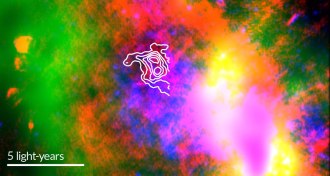 Astronomy
AstronomySpace dust is tough enough to survive supernova aftermath
Dust still lingers in the remnants of supernova that exploded 10,000 years ago, affirming that the explosions filled the early universe with dust.
-
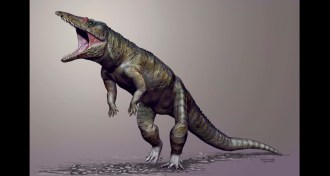 Paleontology
PaleontologyFearsome croc called the Carolina Butcher once ruled the north
Early ancestors of crocodiles, not dinosaurs, may have been northern Pangaea’s top predator 230 million years ago, according to a new fossil find.
-
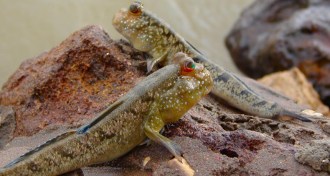 Animals
AnimalsMudskippers use watery tongue to slurp up snacks on land
When mudskippers move from water to land, they use a tongue made of water to move food to the back of their throat and into their stomachs.
-
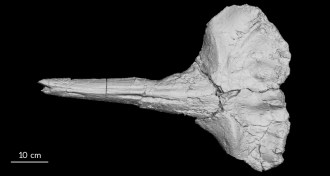 Paleontology
PaleontologyRise of East African Plateau dated by whale fossil
A whale fossil is helping to pinpoint when the East African Plateau started to rise and how the uplift played a role in human evolution, scientists say.
-
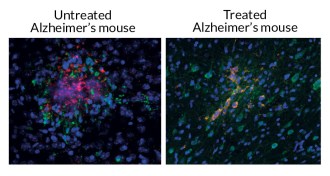 Neuroscience
NeuroscienceUltrasound attacks Alzheimer’s plaques
A new study offers clues to how ultrasound may work as a treatment for Alzheimer’s disease.
-
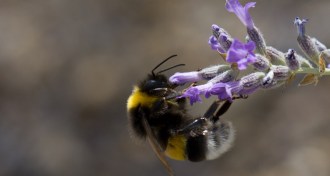 Neuroscience
NeuroscienceBees may merge their flower memories
Bumblebees sometimes prefer fake flowers with the combined patterns and colors of ones seen before, suggesting they merge memories of past experiences.
-
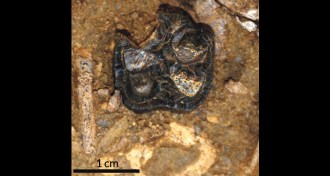 Paleontology
PaleontologyHippo history extracted from fossil teeth found in Kenya
Fossilized teeth from the newly identified Epirigenys lokonensis, an ancestor of the hippopotamus, are filling in some of the mammoth mammal’s history.
-
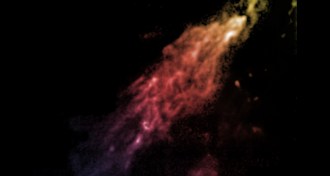 Astronomy
AstronomyGiant hydrogen cloud headed for Milky Way
A high-speed hydrogen cloud on a crash course with the Milky Way appears to be an exotic interloper, preliminary data suggest.
-
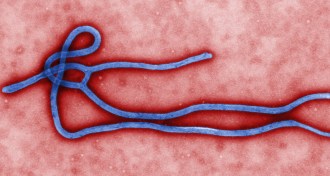 Genetics
GeneticsEbola virus evolution tracked by genetic data
Analysis of Ebola genomes shows how the virus has evolved and some of the mutations that may thwart treatments.
-
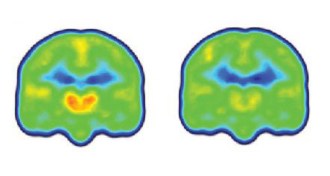 Neuroscience
NeuroscienceChronic pain treatments may get boost from high-tech imaging
Advanced imaging may reveal how well chronic pain treatments work.